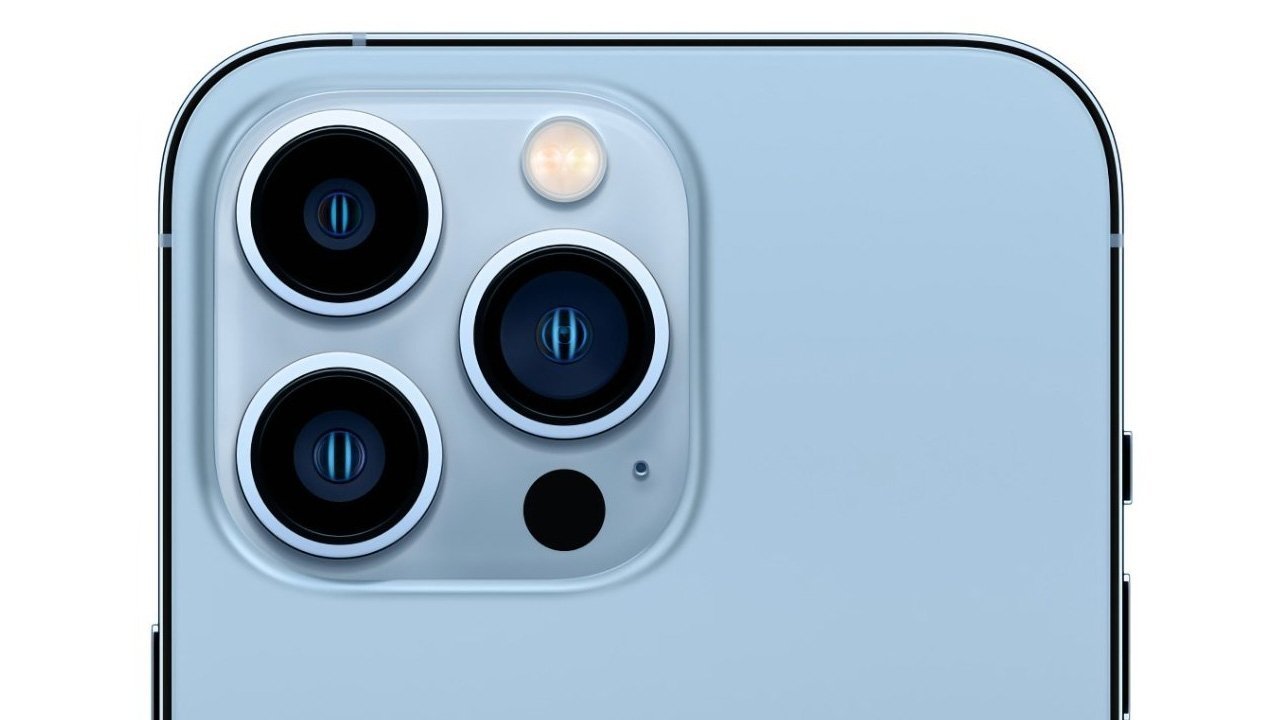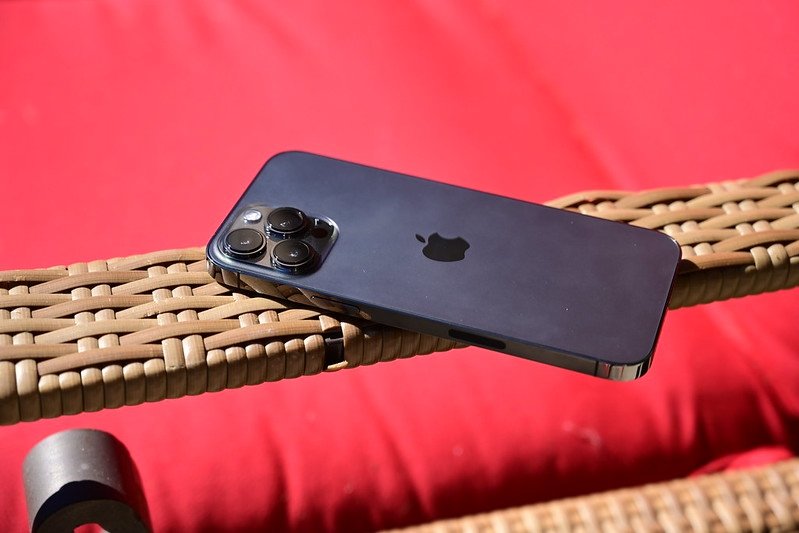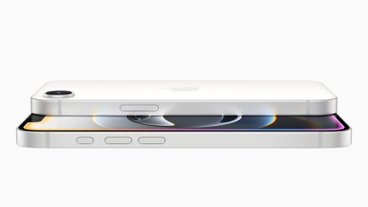Google has launched a new lineup of high-end Pixel devices equipped with chips of its own design. Here's how the highest tier model, the Pixel 6 Pro, stacks up against Apple's iPhone 13 Pro Max.
While the Google Pixel 6 Pro comes in at a lower price point of $899, the device packs some premium features that bring it into competition with Apple's iPhone 13 Pro Max, which retails for $1,099. Here's what the two devices have in common, and how they differ as far as features, cameras, performance, and more.
Google Pixel 6 Pro versus Apple iPhone 13 Pro Max - specs
| iPhone 13 Pro Max | Pixel 6 Pro | |
|---|---|---|
| Price | $1,099 | $899 |
| Dimensions (inches) | 6.33 x 3.07 x 0.30 | 6.5 x 3.0 x 0.40 |
| Weight (ounces) | 8.46 | 7.41 |
| Processor | A15 Bionic | Google Tensor chip |
| RAM | 6GB | 12GB |
| Storage | 128GB, 256GB, 512GB, or 1TB | 128GB, 256GB, or 512GB |
| Display type | 6.7-inch Super Retina XDR display Up to 120Hz refresh rate | 6.7-inch LTPO OLED Display Up to 120Hz refresh rate |
| Resolution | 2,778 x 1,284 at 458 ppi | 3120 x 1440 at 512 ppi |
| Rear Cameras | 12MP wide lens 12MP telephoto lens with up to 3x zoom 12MP ultra-wide lens | 50MP wide lens 48MP telephoto lens, up to 4x zoom 12MP ultrawide lens |
| Front Cameras | 12MP TrueDepth camera | 11.1MP camera |
| Biometrics | Face ID | Under-screen fingerprint sensor |
| Ports | Lightning | USB-C |
| Connectivity | 5G, including mmWave Wi-Fi 6 Bluetooth 5.0 NFC & UWB | 5G, including mmWave Wi-Fi 6E Bluetooth 5.2 NFC & UWB |
| Charging | Up to 23W over USB-C to Lightning Up to 15W over wireless charging | Up to 30W over USB-C Up to 12W over wireless charging |
| Battery Size | 4,352mAh | 5,004mAh |
| Colors | Sierra Blue, Silver, Gold, Graphite | Soa Sunny, Cloudy White, Stormy Black |
Google Pixel 6 Pro versus Apple iPhone 13 Pro Max - Design & Display
The Google Pixel 6 Pro packs a 6.7-inch LTPO OLED display with support for HDR10+ and a 120Hz refresh rate. Google says it packs 612 pixels per inch.
As far as the dimensions go, the Pixel 6 Pro measures 6.5 x 3 x 0.4 inches and weighs 7.41 ounces.
For the Pixel 6 Pro's design, Google has gambled with something that hasn't been seen. While the device has an Android-style pinhole camera on the front, the camera bump on the rear has been converted to a visor-like bump that spans the width of the device's rear. The device features a two-tone casing in several color options.
The iPhone 13 Pro Max, on the other hand, has a similar 6.7-inch OLED display. Apple calls it a Super Retina XDR display, and it too supports up to a 120Hz refresh rate with the company's ProMotion technology.
Apple's iPhone 13 Pro Max measures 6.33 x 3.07 x 0.30 inches and eights 8.46 ounces.
As far as design goes, the iPhone 13 Pro Max has a classic Apple design with stainless steel bands, a glass front and pack, and the signature iPhone notch. The camera bump doesn't differ much from past iPhones, with a three-camera array arranged in a roughly triangular pattern.
Google Pixel 6 Pro versus Apple iPhone 13 Pro Max - Performance
With the Pixel 6 Pro, Google has taken a page out of Apple's book and went in-house for its silicon. The Pixel 6 lineup is the company's first to use its proprietary Google Tensor custom chipset.
Google says it's a fast chip, and early benchmarks back it up. The Pixel 6 Pro had an average single-core score of 1,014 and multi-core score of 2,788 in Geekbench testing.
The Google Pixel 6 Pro packs a whopping 12GB of RAM.
Apple's iPhone 13 Pro Max has an A15 Bionic chipset of the company's own design. More than that, Apple chips have a long track record of crushing pretty much any Android competitor on the market — even those with more RAM.
Although Geekbench hasn't been populated with a wealth of A15 Bionic testing, early scores suggest that the iPhone 13 Pro Max could clock in with a single-core score of 1,738 and a multi-core score of 4,766.
Apple's iPhone 13 Pro Max has 6GB of RAM. However, as stated earlier, Apple devices have long done more with less memory than its Android rivals.
Google Pixel 6 Pro versus Apple iPhone 13 Pro Max - Cameras
Google Pixel devices are known for their cameras, and the Pixel 6 Pro follows in that tradition. It packs a 50-megapixel primary sensor on the rear, as well as a 4x 48MP telephoto lens and a 12-megapixel ultra-wide lens. The Pixel 6 Pro packs one more lens than its Pixel 6 stablemate.
The 50-megapixel sensor features a quad-bayer filter design, which puts four pixels behind each color block. What that means, essentially, is that you're not going to be snapping 50-megapixel images. Instead, expect photos somewhere in the 12 to 13 megapixel range.
Of course, the actual pixels are on the large side, which means more light is getting into the sensor. The end result should be images with more clarity.
Before the introduction of the Pixel 6 Pro, it's very likely that the iPhone 13 Pro Max had the best smartphone camera system on the market. It sports a trio of 12MP lenses: a wide lens, an ultra-wide lens, and a telephoto lens.
Apple's telephoto lens supports up to a 3x zoom, which is lower than the Pixel 6 Pro's. The device has a massive f/1.5 aperture, which makes it perform remarkably well in low-light conditions.
The main trick up the iPhone's sleeve is the fact that the ultra-wide sensor can double as a macro camera. Reports indicate that the macro setting is one of the main draws of the iPhone 13 Pro Max's camera system among consumers, and the lenses' results are so good that at least one optometrist has used it for eye exams.
Google Pixel 6 Pro versus Apple iPhone 13 Pro Max - Other considerations
The Pixel 6 Pro has a 5,000 mAh battery, which is larger than the iPhone 13 Pro Max's 4,352 mAh battery. With that being said, Apple can work magic with power efficiency — and the iPhone 13 Pro Max has the best battery life ever in an iPhone.
As far as charging, the Pixel 6 Pro supports fast charging up to 30W, which eclipses the iPhone 13 Pro Max, since it tops out at 23W. On the other hand, the iPhone 13 Pro Max supports wireless charging up to 15W, which outpaces the Pixel 6 Pro's wireless charging cap of 12W. No matter which smartphone you get, you'll have to provide your own charging brick.
Both phones have an IP68 water- and dust-resistance rating. The iPhone 13 Pro Max features tough-as-nails Ceramic Shield for its screen glass, while the Google Pixel 6 Pro uses tough Gorilla Glass Victus glass.
The two smartphones also support mmWave and sub-6GHz 5G. They also both pack some sort of ultra wideband (UWB)-compatible chip for short-range location finding.
When it comes to biometrics, the iPhone 13 Pro Max continues to use Apple's Face ID technology. The Pixel 6 Pro foregoes any ultra-secure facial recognition for an under-screen fingerprint sensor.
The best of the best from Apple and Google
Both the Pixel 6 Pro and the iPhone 13 Pro Max represent the best that Google and Apple, respectively, have to offer. These are both premium, high-end smartphones with excellent cameras, displays, and performance.
As with most Android versus iPhone comparisons, looking at the specifications on paper only really tells one part of the story.
The majority of the user experience of a Google Pixel 6 Pro or iPhone 13 Pro Max comes down to operating system and connected ecosystems. And though some ardent Apple or Google fans might disagree, but whether or not iOS or Android is "better" is largely subjective and highly dependent on how bought in you are to either ecosystem, and individual workflows.
If you're in the market for a premium smartphone with a top-tier camera, either the iPhone 13 Pro Max or the Google Pixel 6 Pro will suit your needs. The more important question to ask is whether you'd prefer an iPhone 13 over an Android phone, or how deeply embedded in the Apple or Google ecosystem you are.
 Mike Peterson
Mike Peterson








-m.jpg)






 William Gallagher
William Gallagher
 Andrew Orr
Andrew Orr
 Malcolm Owen
Malcolm Owen








-m.jpg)




9 Comments
Some items to note.
- The Pixel screens have 500/800 nits brightness (normal/peak) while the iPhone 13 has 800/1200 and the iPhone 13 Pro 1000/1200. iPhone screens are substantially brighter.
- Pixel uses inferior UFS 3.1 storage vs NVMe storage for iPhone.
- Pixel uses an optical fingerprint sensor, which is less secure than ultrasonic fingerprint sensors used by competitors.
- It’s clear Google didn’t surprise at all with some miracle custom processor. It’s just ARM standard cores paired with a Google designed neural processor (which are relatively simple to make). It’s nowhere near where the A15 is. Sorry, GatorGuy, your wishes didn’t come true.
“Striking…novel design”
An iPhone with a band strapped to the back.
"
Yes, why AI overview of Pixel 6 Pro is better than Google itself? Because Apple world has more honest people? lol
I might add one thing. Note that Google description in Google store failed to discuss the video capability of the camera. This is actually a secret Android pundits have been hiding from ignorant users. Apple excels in video production because of its long term development first in iMovie.
Hey look, another iPhone knockoff doing gold and silver phones